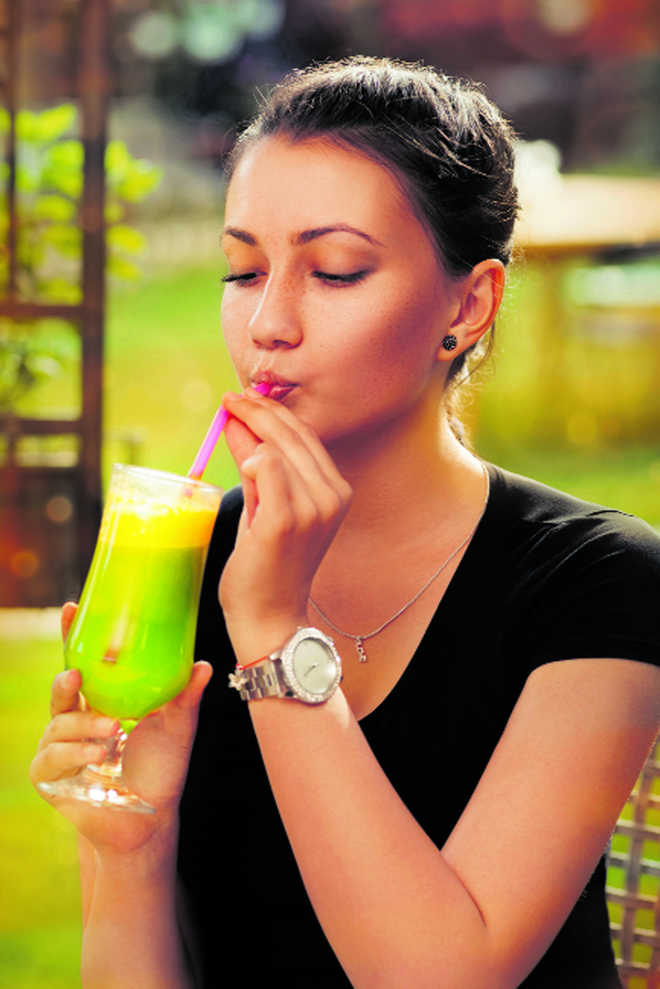Jeevika Tyagi
Succulents are a group of plants that not only manufacture their own food, but also have the wherewithal to stockpile water and nutrients in one or more of their parts such as the stem, roots or leaves. These plants have evolved and perfected themselves to survive under extreme conditions and have thick fleshy tissues. This helps them store water to combat drought and also curtail the need for water to survive and sustain. Succulent species of aloe barbadensis, caralluma fimbriata and agave tequila are edible.
Aloe barbadensis, commonly known as aloe vera, is the only medicinal species in the genus Aloe. The gel-like portion from its fleshy leaves is edible. Aloe enjoys worldwide acceptance for skin care, beverages, health, pharmaceuticals, food and a range of other products.
Aloe magic
Here is a quick look at aloe vera’s active components:
- Antioxidant vitamins like A, C and E are present in aloe vera along with vitamin B12, folic acid and choline, which can all neutralise the damaging effect of free radicals.
- Enzymes like bradykinase help reduce inflammation while aliiase, alkaline phosphatase, amylase, carboxypeptidase, catalase, cellulase, lipase and peroxidase play an important role in the metabolism.
- Minerals such as calcium, copper, selenium, chromium, manganese, magnesium, potassium, sodium and zinc that help in proper functioning of enzyme systems.
- Aloe has 12 anthraquinones or compounds that work as laxatives. Among these, aloin and emodin are also analgesics, antiseptics and antivirals.
- Four fatty acidscholesterol, campesterol, beta-sisosterol and lupeol are anti-inflammatory agents.
- Hormones auxins and gibberellins help heal wounds and are anti-inflammatory.
- Sugars such as monosaccharides and polysaccharides guard against allergies and inflammation.
Nutritional facts and benefits
What is astonishing to note about aloe vera is that it contains more than 75 active agents, including vitamins, minerals, sugars, amino acids, enzymes and saponins to name a few. It is truly deserving of its title as “Plant of immortality” as it provides 20 of the 22 amino acids required by human beings.
Home remedies
Indigestion: Drink 20 ml aloe juice with 40 ml water.
Sunburn, scars: Mix the gel with honey and apply on affected areas.
Gum diseases: Massage your gums with fresh aloe vera gel or sprinkle some aloe vera powder on your toothbrush.
Acne: Apply aloe gel on its own or with essential oils such as neem or tea tree.
Diabetes: Drinking 20-30 ml aloe juice on a daily basis can alleviate chronic hyperglycemia and balance a disturbed lipid profile.
The writer is CEO, Allayurveda.com
Sip of health
In addition to the medicinal benefits that the plant offers, aloe vera juice is one of the best ways to feel fresh and healthy at the same time. Since aloe can give your taste buds quite a rude awakening, blending and mixing it with the right ingredients is important and will definitely be worth all the effort.
Aloe Mojito
Ingredients:
1 Cucumber
1 Apple
1 Lemon
2 tbsp aloe vera pulp
Method:
- Blend the apple and the cucumber.
- Add the lemon juice.
- Cut open an aloe vera leaf and scoop out the pulp and add it to the mix.
- Mix all ingredients together in a jar and refrigerate.
- Garnish with fresh
mint and your summer special awesomeness is
ready to drink!
Unlock Exclusive Insights with The Tribune Premium
Take your experience further with Premium access.
Thought-provoking Opinions, Expert Analysis, In-depth Insights and other Member Only Benefits
Already a Member? Sign In Now










